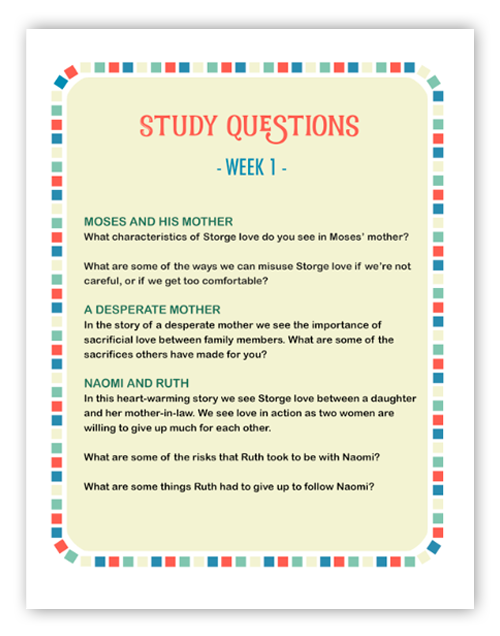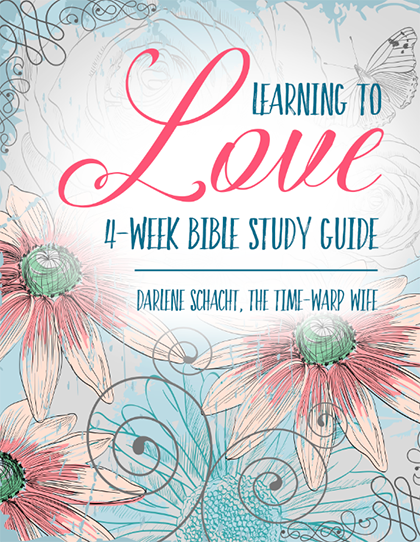
Our Bible study on the four loves begins today and runs throughout the month of February. We’ll be talking about the four Greek words for love, discussing one each week:
Storge – natural affection, most often between family members such as the affection between parents and children
Philia – brotherly love, friendship
Eros – a romantic, passionate love
Agape – God’s love toward man and our reflection of this love
If you’d like to jump in on this Bible study, you can go here to get the free study guide and all of the information you’ll need to get started.
This week we start with a focus on Storge, which is defined as natural affection. It’s the love you see between family members, and can also be found between friends that you love as though they were your own family.
Storge is also used to describe the affection that animals have for their young and puppies have for their owners. Mama bears naturally protect, and dogs are affectionate to their pups.
Other than the compound word, translated as “kindly affectioned” (Romans 12:10), the word itself isn’t found in the Bible, but many stories illustrate this kind of affection between family members.
We see this throughout the Bible in stories like Noah and his wife who took their children into the ark. We see Mary and Martha who loved their brother Lazarus, we see Mordecai who adopted his niece Esther, and raised her from the time she was a child.
C.S. Lewis writes about a link between familiarity and affection. The more familiar we are with people, the more affectionate we may become.
In The Four Loves, he writes, “Affection almost slinks or seeps through our lives. It lives with humble, undress, private things; soft slippers, old clothes, old jokes, the thump of a sleepy dogs tail on the kitchen floor, the sound of a sewing-machine, a gollywog left on the lawn… Affection, besides being a love itself, can enter into the other loves and colour them all through and become the very medium in which from day to day they operate. They would not perhaps wear very well without it.”
There’s also a concern with familiarity that we should be aware of. When we get too comfortable with the people we’re with, we might take their presence, their affection, and their service for granted. It’s often said that people treat their friends better than they do their own family. And so we have to ensure that we don’t slip into bad habits like nagging, ignoring, or overlooking the goodness in them.
This love should come naturally, and normally does, but circumstances can dictate otherwise. A child who is mistreated may lose respect for their parents, and in some cases relationships are severed.
We must take the scripture to heart that tells us, “And, ye fathers, provoke not your children to wrath: but bring them up in the nurture and admonition of the Lord.” – Ephesians 6:4
As you read through the scriptures this week (found in the free study guide), take note of the good and the bad.
When we read about bad behavior in scripture we learn about our own selfish desires; when we see good behaviour we discover ways to improve.
Maybe our selfish desires aren’t as horrendous as others you’ll be reading about, but we all have bad behavior that can be improved upon when we’re willing to examine our heart and allow God to change us.
You are love by an almighty God,
Darlene Schacht
The Time-Warp Wife
P.S. See the colouring page below? Come back here on Friday to continue our study on Storge. I’ll have another colouring page for you then!
Join us on Facebook in our Bible journaling group to share your notes and discuss today’s lesson.
THIS WEEK’S RESOURCES
(new resources posted each Monday in February)
Click here to download this week’s Bible verses.

Click here to download this week’s study questions.
Click here to print this 8.5 x 11 colouring page. Come back on Friday for another one!
FREE STUDY GUIDE
If you haven’t received your study guide yet, click the image below to view and print it.



